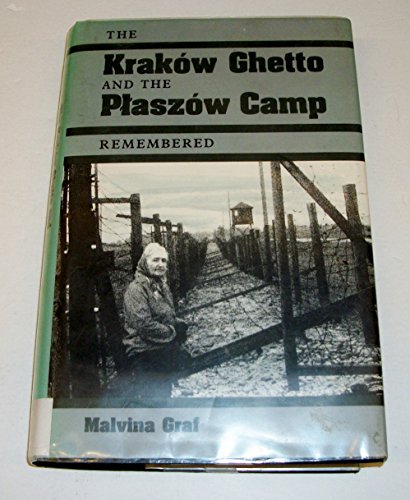
The Kraków Ghetto and the Płaszów Camp Remembered
by Malvina Graf
Popularity
2.71 / 5
* A book's popularity is determined by how it compares to all other books on this website.
Where to buy?
Buy from Amazon* If you buy this book through the link above, we may receive a small commission at no extra cost to you.
The Kraków Ghetto and the Płaszów Camp Remembered by Malvina Graf
Details
War:
World War II
Biography:
No
Region:
Europe
Page Count:
183
Published Date:
1989
ISBN13:
9780813009056
Description
Brief Summary (no spoilers)
The Kraków Ghetto and the Płaszów Camp Remembered by Malvina Graf is a poignant memoir that recounts the harrowing experiences of Jewish life during World War II. The book provides an eye-opening narrative about the struggles and survival of individuals within the infamous Kraków Ghetto and the Płaszów concentration camp. Graf's personal account offers a significant historical perspective from a first-hand witness of the Holocaust.
Main Themes and Topics
Central to Graf's memoir are themes of resilience, survival, and human endurance amidst unimaginable adversity. The book delves into the day-to-day realities faced by the Jewish community in the Kraków Ghetto, highlighting the severe deprivation and brutality they endured. Another crucial theme is the impact of systemic oppression and the struggle to retain hope and identity under such harsh conditions. Graf's narrative also explores the collective will to survive and the bonds created among individuals who shared these harrowing experiences.
Writing Style and Tone
Malvina Graf's writing style is direct and unflinching, providing readers with a raw and honest depiction of life during the Holocaust. The tone of the memoir is both somber and reflective, capturing the gravity of the events described while also honoring the memories of those who suffered. Graf writes with a clear and focused narrative, making the historical and personal aspects of her story both accessible and engaging for readers.
Criticism
While the memoir is a valuable historical document, some readers may find the direct and unadorned narrative style challenging. The straightforward presentation of events, although powerful, might lack the literary embellishments some readers expect from historical memoirs. However, it is this very rawness that provides the memoir with its striking authenticity and emotional impact.









